New Key Stage One Teaching Resources
Check out some of the newest schemes of work, lesson plans, classroom essentials and interactive presentations recently added to Clickprimary for Key Stage One
-

Money Coin Sums
Practise identifying, combining and recording sets of coins that can make matching sums that can be used when shopping for different products
-
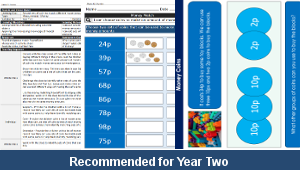
Pounds and Pence Match
Investigate how to identify and record the sets of coins that can match money amounts for different shop products using sums listed in pounds and pence
-
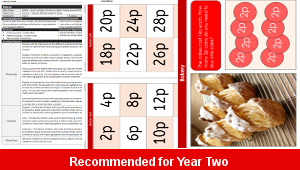
Bakery Coins
Explain and model how to count the numbers of two pence coins that can match money amounts for products sold in a bakery to twenty pence
-
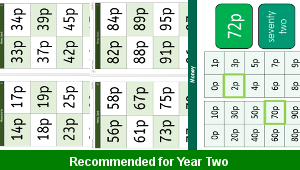
Money Matching Sums
Explore how to identify and record groups of ten pence and penny coins that can be combined together to produce different money amounts to one pound
-
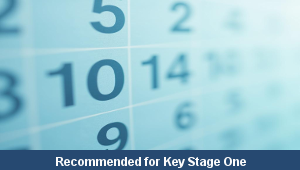
Maths Number Assessment
Assess abilities in working with numbers to solve abstract and contextual problems when calculating sums, products and quotients using different techniques and methods
-
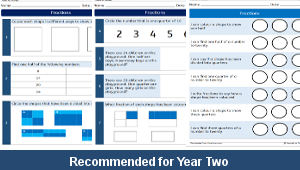
Maths Year Two Number Assessment Fractions Unit
Assess abilities in calculating and identifying unit fractions of shapes, numbers and quantities following the programmes of study for Year Two
-
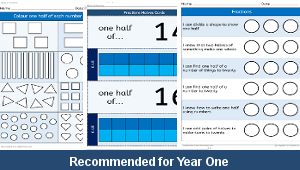
Maths Year One Number Assessment Fractions Halves
Assess abilities in assess abilities in identifying and recording one half of different quantities of shapes and numbers to twenty following the programmes of study for Year One
-

Animal Lists
Investigate how to compile lists using commas to present information about some of the special animals that live in habitats around the world
-

Butterfly Lists
Explain and model how to use commas when writing and punctuating example sentences containing lists about different butterflies that might visit a family garden
-

Garden Mini-beasts
Practise using commas to compile and present lists about some of the different mini-beasts that can be found in habitats around the school grounds
-
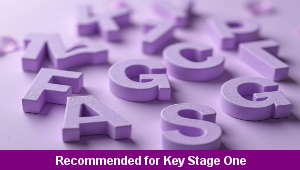
English Spelling Assessment
Assess abilities in spelling different vocabulary words based on the National Curriculum programmes of study for Key Stage One
-

English Year Two Spelling Assessment Term Three
Assess abilities in identifying and recording the correct spelling of vocabulary words that can be used to complete sentences including words with suffix endings and special phoneme sounds
